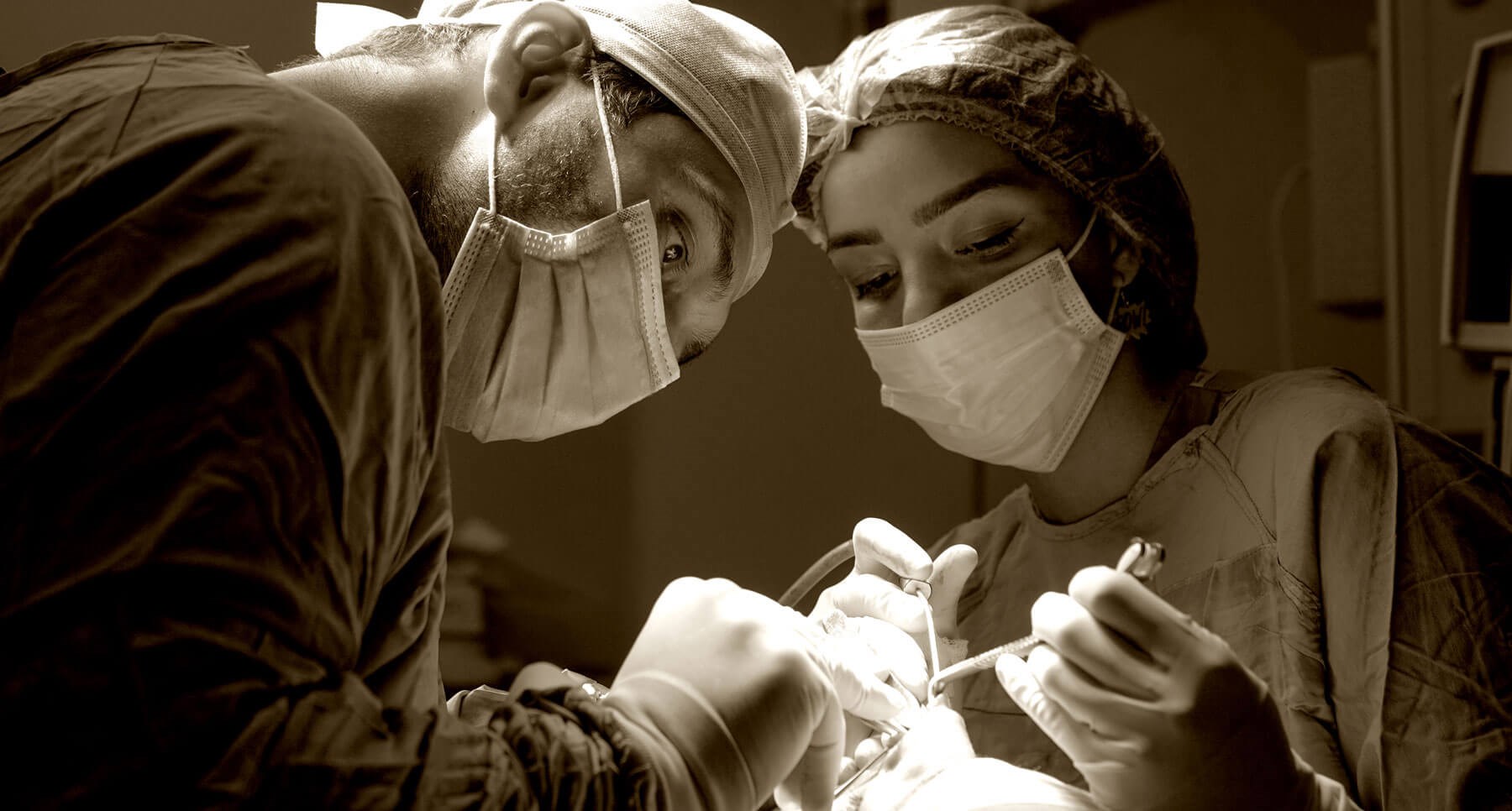The past three years have been tumultuous for cosmetic surgery in Australia. Media reporting on the poor practise of a small number of medical practitioners led to multiple administrative processes including the Independent review of the regulation of medical practitioners who perform cosmetic surgery (2022), commissioned by the Australian Health Practitioner Regulation Agency (AHPRA) and the Medical Board of Australia [1-5].
The evidence has demonstrated that adverse, avoidable outcomes occur from both plastic surgeons and cosmetic or other surgeons who may have inadequate training in cosmetic surgery [2,3,6-12]. As a consequence, profound regulatory changes, including a world-first recognition of a separate registration standard for practitioners of cosmetic surgery, have been initiated from 1 July 2023 [13,14]. But will the changes be effective in making cosmetic surgery safer for patients?
The question is important not only for Australians, but also for observing international regulators, because the problem inherent to cosmetic surgery is fundamentally the same across the western world [15,16]. In Australia, it is an area of practice that is unable to be recognised under National Law as a medical speciality [4,10,11,17-19]. Accordingly, it was accurately described by the independent review as ‘…unique and somewhat of a health market disrupter, largely sitting outside of the existing health system frameworks’ [4].

Australia is now attempting to tackle the problem. Principal amongst the proposed solutions include restriction of which medical practitioners can title themselves ‘surgeon’, along with an ‘endorsement’ of the area of practice of cosmetic surgery [13,20]. So, will these specific measures help?
Title protection
Title protection has an existing precedent of failure in Queensland, Australia from two decades ago. Reportedly it confused patients and resulted in many vexatious complaints generated by doctors, not patients. It occupied the time of the medical regulator but did not protect patients [21].
Consistent with that lack of protection, the 2022 independent review stated that whilst ‘clarity for consumers about the training and qualifications of medical practitioners undertaking cosmetic surgery is essential, it does not consider that title protection alone provides enough clarity or sufficient protection to the public. The unique environmental factors found within the cosmetic surgery sector call for a more unique regulatory response’ [4]. Why?
The flaws in the concept of restricting title to protect cosmetic surgery patients were set out in the key academic paper, Cosmetic Surgery Regulation in Australia: Who Is to Be Protected—Surgeons or Patients?, published June 2022 and at the time of writing, now viewed and downloaded on more than 3000 occasions [3]. In short, for title protection to be effective in cosmetic surgery, it must be linked to competence [22] in cosmetic surgery [15,16]. Implemented in such a manner, it may then have a place in protecting such patients [16].
However, it is not being so implemented, instead being linked to three groups of medical practitioners who hold specialist registration in either surgery, obstetrics and gynaecology or ophthalmology [20,23,24]. It is critical therefore to understand what specialist registration actually means in relation to competence in cosmetic surgery. Consideration of the key published evidence lays bare the flaws.
The Australian Medical Council (AMC), the independent national standards body for medical education and training which accredits the training and education programmes of the Royal Australasian College of Surgeons (RACS), provides no evidence of cosmetic surgery training by RACS in its eight specialty training programmes, outside of plastic and reconstructive surgery [25].
Within plastic and reconstructive surgery, AMC reports since 2002 suggest inadequate cosmetic surgical training [25,26]. In its 2017 report, the AMC variously stated in relation to cosmetic surgery that plastic surgical trainees have a ‘lack of training’, a ‘deficit’ in experience available and qualify with ‘a gap in this area of practice’ [25]. Its most recent report, published in early 2022, is silent about any robust dedicated cosmetic surgical training and experience for plastic surgical trainees [27]. Given the nature of plastic and reconstructive surgical training in public hospitals where cosmetic surgery is not performed, the absence of such explicit reporting is not surprising [28].
At Informa Australia’s Cosmetic Surgery Safety Conference in Sydney, June 2023, Associate Professor Jillian Sewell AM, Chair of the AMC Accreditation Standards and Procedures Project Advisory Group for Cosmetic Surgery Programs of Study, stated ‘It is just a fact that there is no established independent standards for cosmetic surgery training’, and in relation to cosmetic surgical training by RACS, ‘that part of surgical college training has not been accredited as a specific area. It is not endorsed against, it is not accredited against a specific set of standards. It is part of the specialty area of surgery. So, this is a new area with no current established programmes and no current independent standards’ [29].
Such an authoritative statement corroborates the position that title protection alone will not protect patients by allowing them to identify surgeons who are trained, competent and safe in cosmetic surgery. Worse, it may give false reassurance that because the doctor is allowed to use the restricted title ‘surgeon’ in the context of offering cosmetic surgery, he or she is trained, competent and safe to perform cosmetic surgery when that may not be the case [12,21].
Nevertheless, title protection unlinked to competence in cosmetic surgery is now passing through Queensland Parliament and thereafter other Australian states will almost certainly follow suit [20]. As Churchill once famously remarked: ‘Those that fail to learn from history are doomed to repeat it’ [30].
It was observed that despite the AMC’s evidence spanning more than two decades, RACS had been quick to declare title restriction as ‘a major victory’ whilst omitting to mention that it would, in effect, deliver a commercial monopoly in cosmetic surgery to its fellows [29,31].
Endorsement
The concept of endorsement of the area of practice of cosmetic surgery is a different story. It is not only a new and unique approach to ensure competent cosmetic surgical practice, but also clever use of a mechanism readily available under existing National Law. As Dr Anne Tonkin AO, Chair Medical Board of Australia (MBA) recently observed, ‘under our current National Law, what we are putting in place is the strongest thing we can do’ [32].
Fundamentally, the strength of endorsement is its requirement for both core surgical training and competence, along with specific training and competence in cosmetic surgery [33-36]. As the evidence demonstrates, at qualification, few medical practitioners have both.

Endorsement will raise the standard by eliminating those who have little or no core surgical training from the practice of cosmetic surgery, whilst simultaneously requiring those who do have core training to demonstrate that they also have adequate cosmetic surgical training and competence. Such endorsement will be readily visible to patients in the form of an independent, easily accessible public register [37-40].
However, to be effective, endorsement must be implemented as originally intended – being equally applicable to every medical practitioner undertaking the practice of cosmetic surgery. During its genesis, it was predicted that two groups of medical practitioners might object to it: those who could not reach the required standard to be endorsed and those (or their craft groups) who may seek to achieve a commercial advantage, by lobbying during the regulatory reform process in an attempt to eliminate competent, professional competitors [41].
"To be effective, endorsement must be implemented as originally intended – being equally applicable to every medical practitioner undertaking the practice of cosmetic surgery."
As Dr Tonkin observed, ‘There is a lot of money at stake in cosmetic surgery reform. Our reform package prioritises patient safety over vested interest’ [13]. She went on to say that ‘Creating an endorsement is the strongest regulatory tool in our kit. We’re introducing it to make patients safer. An endorsement will tell patients who is trained and qualified. Without it, patients will be no better informed than they are now and the opportunity to clean up the cosmetic industry will be lost’ [13].
Nevertheless, having hitched their strategic wagon to AMC specialist accreditation, opposition to endorsement by fellows of RACS and associated craft groups was unsurprising. Despite apparent initial support for the independent review, shortly before its publication RACS’ fellows suddenly commenced calls for a Royal Commission, intriguingly including the basis of such an investigation as being ‘independent’ [42-44].
Just days later, following confidential briefing of the outcome of the independent review – which included the key recommendation to establish an area of practice endorsement for cosmetic surgery – a ‘revolt’ and ‘slanging match’ was reported [4,45]. The President of the Australasian Society of Aesthetic Plastic Surgeons (ASAPS) even reportedly called for the medical regulators, AHPRA and the MBA to resign by the statement, ‘Is AHPRA now complicit in patient harm? They must go’ [45].
RACS were forced onto the defensive and made an associated public statement [46]. As AHPRA and the MBA later wryly stated, ‘most stakeholders support reform, but only if they don’t have to change what they do’ [47].
Despite the objective evidence about cosmetic surgical training within AMC accredited, RACS specialist surgical training programmes, endorsement has been pejoratively described by fellows of RACS, and its associated surgical craft groups including the Australian Society of Plastic Surgeons and ASAPS, as a ‘loophole’; ‘a B-class, substandard qualification and FRACS surgeons would not want to be associated with it’; ‘misguided’; an ‘unacceptable downgrading in training standards […] creating a dangerous system where the benchmark in skills and capabilities required to perform cosmetic surgery will be lower than that required for other forms of surgery’; ‘a second tier of inferior training and lesser standards’; and ‘a little endorsement programme’ [47-52].
As Associate Professor Sewell of the AMC recently and astutely observed, ‘[endorsement] is not very well understood in the medical field’ [29]. Indeed.
So, whilst sensible foundation steps have been made, it is clear that challenges remain [53]. Given the evident difficulties of isolated title protection in relation to protecting patients seeking cosmetic surgery, caution remains regarding its interrelationship with endorsement of the area of practice of cosmetic surgery.
"Given the evident difficulties of isolated title protection in relation to protecting patients seeking cosmetic surgery, caution remains regarding its interrelationship with endorsement of the area of practice of cosmetic surgery."
Put simply, medical practitioners to whom the title ‘surgeon’ is restricted may represent themselves to the public seeking cosmetic surgery as being trained and competent in cosmetic surgery when that may not be the case. In contrast, practitioners who are trained and competent in cosmetic surgery but are unable to use the title ‘surgeon’ may be able to be ‘endorsed’ in the area of practice of cosmetic surgery. The recipe for confusion is obvious.
The anomaly may be addressed simply by regulators requiring medical practitioners who seek to undertake cosmetic surgery yet refuse to be endorsed, or who have not met the standard for endorsement, to declare as such to patients. That will allow consumers to ask appropriate questions as to their training, experience and competence in cosmetic surgery, so they are informed in their choice of practitioner.
In 2023 medical regulators and the profession have the opportunity and obligation to cooperate and collaborate to advance the safety of patients seeking cosmetic surgery. As Dr Tonkin presciently observed, ‘it is now the time for all of us to work together for the sake of consumers and patients and to promote safety for the community […] under our current National Law, what we are putting in place is the strongest thing we can do […] a lot of the debate that has been going on doesn’t take that into account’ [32].
Success of regulatory reform by establishment of an area of practice endorsement for cosmetic surgery will be a major advance that could set a precedent across the globe. As a new registration standard evolves, the eyes of the world are upon Australia [14,53,54].
References
1. ABC Four Corners. Cosmetic Cowboys (2021).
https://www.abc.net.au/4corners/
cosmetic-cowboys/13603636
[last accessed October 2021]
2. Parliament of Australia. Administration of registration and notifications by the Australian Health Practitioner Regulation Agency and related entities under the Health Practitioner Regulation National Law (2022).
https://parlinfo.aph.gov.au/parlInfo/search/summary
/summary.w3p;query=InquiryName_Phrase%3A%22
Administration%20of%20registration%20and%
20notifications%20by%20the%20Australian%20
Health%20Practitioner%20Regulation%20
Agency%20and%20related%20entities%20under%20
the%20Health%20Practitioner%20Regulation%
20National%20Law%22
[last accessed June 2023]
3. Tansley P, Fleming D, Brown T. Cosmetic Surgery Regulation in Australia: Who Is to Be Protected—Surgeons or Patients? Am J Cosmet Surg 2022;39(3):161-5.
4. Brown A. Final report - Independent review of the regulation of medical practitioners who perform cosmetic surgery (2022).
https://www.ahpra.gov.au/News/Cosmetic-surgery
-independent-review-of-patient-safety.aspx
[last accessed September 2022]
5. Engage Victoria. Medical practitioners' use of the title surgeon under the National Law (2022).
https://engage.vic.gov.au/medical-practitioners
-use-title-surgeon-under-national-law
[last accessed January 2023]
6. Bismark MM, Gogos AJ, McCombe D, et al. Legal disputes over informed consent for cosmetic procedures: a descriptive study of negligence claims and complaints in Australia. J Plast Reconstr Aesthet Surg 2012;65(11):1506-12.
7. Health Quality and Complaints Commission. Great expectations: A spotlight report on complaints about cosmetic surgical and medical procedures in Queensland (2013).
http://www.hqcc.qld.gov.au/News/Pages/
Spotlight-on-cosmetic-procedures.aspx
[last accessed June 2023]
8. Fletcher M. Answers to written Questions on Notice, received from AHPRA (2021).
https://www.aph.gov.au/Parliamentary_Business/
Committees/Senate/Community_Affairs/AHPRA/
Additional_Documents?docType=Answer%20
to%20Question%20on%20Notice
[last accessed October 2021]
9. Durham P. Cosmetic surgery review to probe ‘weak safety culture’ (2021).
https://medicalrepublic.com.au/cosmetic-surgery
-review-to-probe-weak-safety-culture/58864?utm
_source=TMR%20List&utm_campaign=9eb1
e4fb8d-Newsletter_November_30_11_21&utm
_medium=email&mc_cid=9eb1e4fb8d&mc
_eid=17fdd549a6&fbclid=IwAR39Zf71AswflHTtazmw2lp
_AKzK8rv0fUfjTyqqJN07AA2NP6NeR7cK2u8
[last accessed November 2021]
10. Engage Victoria. Health Council – Consultation RIS – Use of the title ‘surgeon’ – 13 December 2021 (2022).
https://engage.vic.gov.au/medical-practitioners
-use-title-surgeon-under-national-law
[last accessed December 2021]
11. Engage Victoria. Executive Summary (Consumers) – Consultation RIS – Use of the title ‘surgeon’ – 13 December 2021 (2022).
https://engage.vic.gov.au/medical-practitioners
-use-title-surgeon-under-national-law
[last accessed December 2021]
12. Tansley P, Fleming D, Brown T. Cosmetic Surgery Regulation in Australia: Who Is to Be Protected—Surgeons or Patients? Am J Cosmet Surg 2022;39(3):161-5.
13. AHPRA Medical Board. Patients better protected under new cosmetic surgery reforms (2023).
https://www.medicalboard.gov.au/News/
2023-04-03-cos-surgery-update.aspx
[last accessed April 2023]
14. AHPRA & National Boards. About endorsement: The process for establishing an endorsement for cosmetic surgery (2023).
https://www.ahpra.gov.au/Resources/Cosmetic
-surgery-hub/About-endorsement.aspx
[last accessed July 2023]
15. Tansley P. RESPONSE – Who should decide the qualification to do cosmetic surgery? (2022).
https://www.thepmfajournal.com/features/
features/post/response-who-should-decide
-the-qualification-to-do-cosmetic-surgery
[last accessed July 2022]
16. Tansley P. OPINION – Cosmetic surgery: a difficult reality with a simple solution (2022).
https://www.thepmfajournal.com/features/
features/post/opinion-cosmetic-surgery-a
-difficult-reality-with-a-simple-solution
[last accessed September 2022]
17. Parliament of Australia. AHPRA: Submissions (2021).
https://www.aph.gov.au/Parliamentary
_Business/Committees/Senate/Community
_Affairs/AHPRA/Submissions
[last accessed June 2021]
18. Parliament of Australia. Additional Documents (2020-21).
https://www.aph.gov.au/Parliamentary
_Business/Committees/Senate/Community
_Affairs/AHPRA/Additional_Documents
[last accessed October 2021]
19. Victorian Legislation. Health Practitioner Regulation National Law (Victoria) Act 2009 (Act Number 79/2009) (2019).
https://www.legislation.vic.gov.au/
in-force/acts/health-practitioner-regulation
-national-law-victoria-act-2009/006
[last accessed June 2023]
20. Queensland Parliament. REPORT NO. 35, 57TH PARLIAMENT - HEALTH PRACTITIONER REGULATION NATIONAL LAW (SURGEONS) AMENDMENT BILL 2023 (2023).
https://www.parliament.qld.gov.au/
Work-of-Committees/Committees/
Committee-Details?cid=169&id=4254
[last accessed June 2023]
21. Parliament of Australia. Australian Health Practitioner Regulation Agency and related entities under the Health Practitioner Regulation National Law Final (2021).
https://parlinfo.aph.gov.au/parlInfo/search/
display/display.w3p;adv=yes;orderBy=customrank;page
=0;query=Australian%20Health%20Practitioner%
20Regulation%20Agency%20and%20related%
20entities%20under%20the%0AHealth%20Practitioner
%20Regulation%20National%20Law;rec=11;resCount=Default
[last accessed June 2023]
22. Burd A. COMMENT FROM ANDREW BURD, EDITOR OF THE PMFA JOURNAL [on] OPINION - Who should decide the qualification to do cosmetic surgery? (2022).
https://www.thepmfajournal.com/features/
features/post/opinion-who-should-decide
-the-qualification-to-do-cosmetic-surgery
[last accessed July 2022]
23. Australian Government Department of Health and Aged Care.
Health Ministers’ Meeting – Communique 14 December 2022 (2022).
https://www.health.gov.au/resources/
publications/health-ministers-meeting
-communique-14-december-2022
[last accessed June 2023]
24. Australian Government Department of Health and Aged Care. Health Ministers’ Meeting – Communique 24 February 2023 (2023).
https://www.health.gov.au/resources/
publications/health-ministers-meeting
-communique-24-february-2023
[last accessed June 2023]
25. Australian Medical Council Limited. Accreditation Report: The Training and Education Programs of the Royal Australasian College of Surgeons (2017).
https://www.amc.org.au/wp-content/
uploads/accreditation_recognition/specialist
_edu_and_training/report/2017_surgeons_report.pdf
[last accessed June 2023]
26. Australian Medical Council Limited. Specialist Education Accreditation Committee. Accreditation Report: Review of the Education and Training Programs of the Royal Australasian College of Surgeons (2002). Available through request to the AMC.
27. Australian Medical Council Limited. Accreditation Report: The Training and Education Programs of the Royal Australasian College of Surgeons (2021).
https://www.amc.org.au/
wp-content/uploads/2022/03/2021
-RACS-Report-secured-1.pdf
[last accessed June 2023]
28. Tansley P, Hodgkinson D, Brown T. Comments on "Defining Plastic, Reconstructive, Aesthetic, and Cosmetic Surgeries: What Can Get Lost and Found in Translation". Ann Plast Surg 2021;86(4):487-8.
29. Sewell J. Levelling the playing field: working together to build an extra layer of protection. Informa Connect Cosmetic Surgery Safety Conference: 14-15 June 2023; PARKROYAL Darling Harbour, Sydney.
30. Tansley P. Invited Keynote Address. Cosmetic Surgery - myths, reality and the solution [video] (March 2022).
https://vimeo.com/690439510/f85e576578
31. Langley S. President’s Message. RACS 91st Annual
Scientific Congress: 30 April-5 May 2023; Adelaide Convention Centre, South Australia.
32. Tonkin A. Opening Address: Cosmetic Surgery Reforms. Informa Connect Cosmetic Surgery Safety Conference: 14-15 June 2023; PARKROYAL Darling Harbour, Sydney.
33. ABC News. Calls for national standards for cosmetic surgery [audio] (October 2021).
https://www.abc.net.au/radionational/
programs/breakfast/calls-for-nationa
l-standards-for-cosmetic-surgery/13603424
34. @sunriseon7. There are calls for an overhaul of Australia's booming cosmetic surgery industry amid worrying claims of dodgy practices and horror cases [Twitter post] (12:29 AM 27 October 2021).
https://t.co/J95f07hzYg
[last accessed 27 October 2021]
35. Radio 6PR Perth. Calls to reign in ‘rogue’ cosmetic surgeons as more than 300 go ‘badly wrong’ [audio] (November 2021).
https://www.6pr.com.au/calls-to-reign
-in-rogue-cosmetic-surgeons-as
-more-than-300-go-badly-wrong/
36. Australian College of Cosmetic Surgery and Medicine (ACCSM). Fact sheet proposed endorsement model (2022). Available through request to the ACCSM.
37. Tansley P. Knowledge and the Knife. The Daily Telegraph (AU) 24 November 2020.
38. Tansley P. Cosmetic surgery industry must be reviewed as demand surges. Herald Sun (AU) 22 December 2020.
39. Tansley P. Standards need to lift in cosmetic surgery. Herald Sun (AU) 23 December 2020.
40. Tansley P. Safety of patients must come first. The Sydney Morning Herald (2021).
https://www.smh.com.au/national/
patients-must-come-first-regulate
-cosmetic-surgeons-like-any-other
-doctor-20211031-p594qb.html
[last accessed November 2021]
41. Australian College of Cosmetic Surgery and Medicine (ACCSM). #KnowTheDifference. Are plastic surgeons deceiving the public? (2021).
https://www.accs.org.au/
download/?id=media&doc=185
[last accessed January 2021]
42. Ashton M. Worse than Wild West: cosmetic cowboys must be reined in. The Sydney Morning Herald (2022).
https://www.smh.com.au/healthcare/
worse-than-wild-west-cosmetic-cowboys
-must-be-reined-in-20220511-p5akil.html
[last accessed June 2022]
43. Daniel D. Butler puts cosmetic surgery regulation on health ministers’ agenda as calls for royal commission grow. The Sunday Morning Herald (2022).
https://www.smh.com.au/politics/
federal/butler-puts-cosmetic-surgery-regulation
-on-health-ministers-agenda-as-calls-for-royal
-commission-grow-20220822-p5bboj.html
[last accessed August 2022]
44. Ashton M. Anyone taking on the ‘cosmetic cowboys’ should take care, as I discovered. The Age (2022).
https://www.theage.com.au/national/
anyone-taking-on-the-cosmetic-cowboys
-should-take-care-as-i-discovered
-20220824-p5bcht.html
[last accessed August 2022]
45. Ferguson A. Secret cosmetic surgery review meeting ends in revolt. The Sunday Morning Herald (2022).
https://www.smh.com.au/lifestyle/
health-and-wellness/secret-cosmetic
-surgery-review-meeting-ends-in
-revolt-20220829-p5bdng.html
[last accessed August 2022]
46. Royal Australasian College of Surgeons. RACS statement on briefing made by AHPRA and the National Medical Board of Australia (2022).
https://www.surgeons.org/News/
News/RACS-statement-on-briefing-made-by-AHPRA
-and-the-National-Medical-Board-of-Australia
[last accessed August 2022]
47. Tuohy W. Health regulator lowering safety standards for cosmetic surgery, specialists say. The Sydney Morning Herald (2023).
https://www.smh.com.au/national/
health-regulator-lowering-safety-standards
-for-cosmetic-surgery-specialists-say-20230204-p5chx8.html
[last accessed February 2023]
48. Timms P, Gregory K, Florance L. Medical regulator AHPRA to act on rogue cosmetic surgeons, but will it protect patients? ABC News (2022).
https://www.abc.net.au/news/
2022-09-01/ahpra-accepts-16
-recommendations-on-cosmetic
-surgeons/101387624
[last accessed September 2022]
49. Royal Australasian College of Surgeons. Rushed cosmetic surgery reforms risk doing more harm than good (2023).
https://www.surgeons.org/en/News/
media-releases/cosmetic-surgery
[last accessed March 2023]
50. Edwards T. Timothy Edwards: The loophole allowing ‘cosmetic cowboys’ to put Aussies at risk. The West Australian (2023).
https://thewest.com.au/news/health/timothy-edwards
-the-loophole-allowing-cosmetic-cowboys-to-put
-aussies-at-risk--c-10251684?utm_source=csp&utm
_medium=portal&utm_campaign=Meltwater&token
=bxylgr50QyF55ARTfG%2FJ8DRTX4SOtBHztX
IJEP1bgAS9dJoOw1Nfzt51Wv4LcQcZoXZKux%
2B5gEufnTcvosK4yg%3D%3D
[last accessed April 2023]
51. Payne H. Tale of two cosmetic surgery training programs. Medical Republic (2023).
https://www.medicalrepublic.com.au/
tale-of-two-cosmetic-surgery-training
-programs/90115?utm_source=website
&utm_medium=listings-search&utm_campaign
=tale%20of%20two%20cosmetic
[last accessed April 2023]
52. Australian Society of Plastic Surgeons. Medical groups response to Ahpra comments in The Australian of 31 March 2023 (2023).
https://plasticsurgery.org.au/wp-content/
uploads/2023/04/Medical-groups-response
-to-Ahpra-comments-in-The-Australian
-of-30-March-2023.pdf
[last accessed March 2023]
53. Tansley P. Closing panel: Managing patient expectations: who is to be protected - Surgeons or Patients? Informa Connect Cosmetic Surgery Safety Conference: 14-15 June 2023; PARKROYAL Darling Harbour, Sydney.
54. Australian Medical Council Limited. Media Release: New training standards for cosmetic surgery to protect patients (2023).
https://www.amc.org.au/wp-content/
uploads/2023/04/cosmetic-surgery
-standards-media-release.pdf
[last accessed April 2023]
COMMENTS ARE WELCOME











